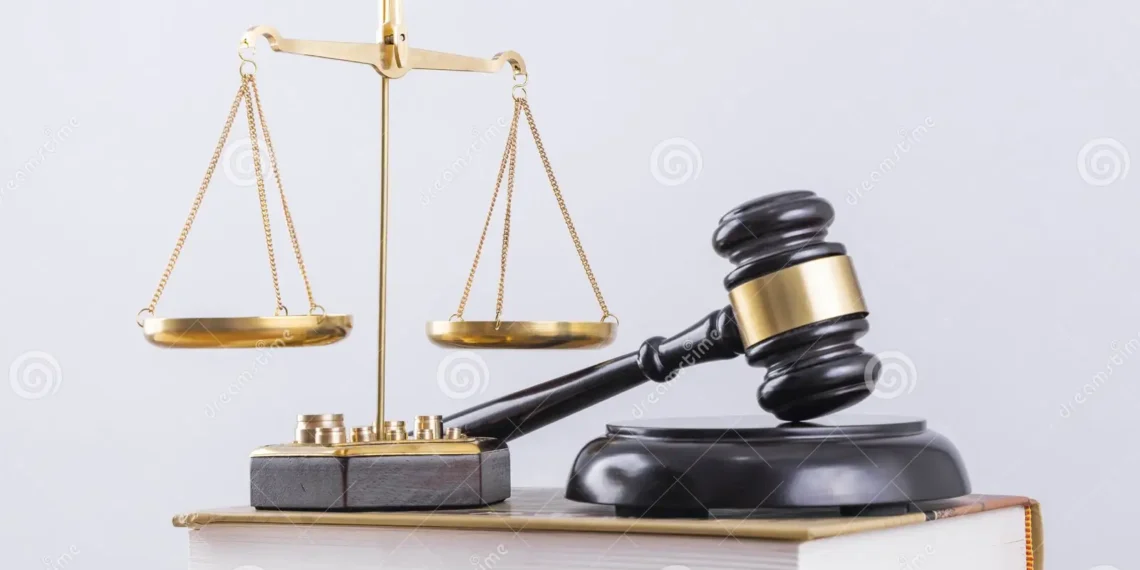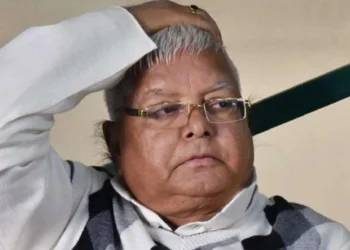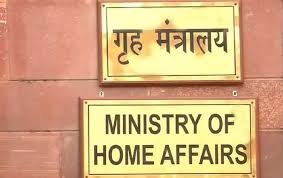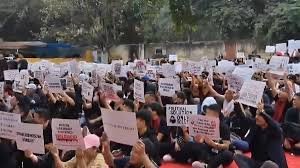Editor’s Note: As part of our ongoing commitment to serve as an advocacy platform for peace in Manipur, we continue to welcome “opinion” pieces from all communities. We encourage individuals to use this space to express their perspectives with sincerity and responsibility. We urge contributors to refrain from language that could be interpreted as inciting violence or hatred. In line with this initiative, we present a write-up by HS Benjamin Matep, Chairman of the Kuki Organisation for Human Rights Trust (KOHUR). Please mail your write-up at: novinkn@gmail.com.
By H.S. Benjamin Mate
Nearly six months into the imposition of President’s Rule in Manipur, the expectation of an impartial administration of justice remains unmet for the embattled Kuki-Zo tribal community. Despite the theoretical suspension of partisan governance, the judicial and law enforcement machinery in the state continues to be heavily dominated by the Meitei community, undermining the very purpose of central rule. This systemic imbalance has not only impeded fair access to justice but has actively perpetuated the marginalization and criminalization of the Kuki-Zo people.
Systemic Ethnic Imbalance in Judiciary and Legal Administration
At the heart of the crisis is the glaring ethnic monopoly over key legal institutions in Manipur. The High Court of Manipur, subordinate courts, and the office of the Advocate General are overwhelmingly staffed by individuals from the Meitei community. Out of all serving judges in the Manipur High Court and Sessions Courts, there is a near-total absence of tribal representation, effectively alienating the Kuki-Zo and Naga communities from the very institutions meant to safeguard their rights.
READ: Kuki Inpi Delhi: No Kuki-Zo MLA to Back “New” Manipur Govt
Manipur Jail Violates Kuki Detainees’ Rights, Alleges KOHUR#ManipurJailCrisis #KOHUR #CustodialAbuse
#KukiZoRights #HumanRightsViolation #SenapatiJail
#TribalJustice #RuleOfLawManipur #NHRCIndia https://t.co/qyOsevDirb— POWER CORRIDORS (@power_corridors) July 12, 2025
The Advocate General of Manipur — the highest law officer in the state — continues to be a Meitei, despite widespread calls for his replacement owing to concerns of bias, conflict of interest, and failure to act impartially in ethnic violence-related cases. The continuing presence of a partisan legal head under President’s Rule raises serious questions about the Centre’s commitment to neutrality and justice.
Weaponization of the Law Against Kuki-Zo Civilians
The consequences of this judicial imbalance are dire. Since the outbreak of ethnic violence on May 3, 2023, hundreds of Kuki-Zo civilians, community leaders, and youth have been arbitrarily arrested on dubious or unsubstantiated charges. Many are languishing in detention without trial, often denied bail or basic legal recourse. In stark contrast, documented perpetrators of violence from Meitei radical groups have evaded arrest or have been granted preferential treatment by the legal system.
READ: Koneru Humpy Scripts History, Enters World Chess Semifinals
Security forces — both state and central — have also reportedly acted on biased intelligence or pressure from valley-based political and civil organizations, further exacerbating the unjust treatment of Kuki-Zo individuals. The absence of oversight or accountability in these arrests has deepened fears of institutional persecution.
Unaddressed Atrocities and the Long Wait for Justice
While arrests and legal actions against the Kuki-Zo continue unabated, over a thousand cases of crimes committed against the Kuki-Zo community remain unresolved. These include:
- The rape and sexual assault of Kuki-Zo women, many of which were filmed and circulated online as acts of humiliation and terror;
- The cold-blooded murder of hundreds of civilians, including women, children, and the elderly;
- The destruction and arson of over 6,500 homes and hundreds of churches, displacing more than 60,000 people from their ancestral lands.
READ: Bihar SIR Blowup (Part-3): Will EC Reveal Count of Dalits & Muslims Purged from roll?
Despite the severity and scale of these crimes, not a single major conviction has been secured. Investigations have either stalled or been deliberately diluted. FIRs filed by tribal victims are often ignored, closed, or redirected, and courts have shown little urgency in hearing or advancing these cases.
President’s Rule: A Missed Opportunity for Judicial Reform
President’s Rule was invoked with the hope that a centrally managed administration would restore law and order impartially. Yet, the unchanged composition of the judicial system has rendered this hope illusory for the Kuki-Zo. Rather than ensuring equitable justice, the existing legal infrastructure has functioned as an extension of valley-centric domination, shielding perpetrators and criminalizing victims.
For justice to be realized, urgent measures must be taken:
- Appointment of Neutral Judges: Judges from outside Manipur — preferably from other tribal or marginalized backgrounds — must be posted to the High Court and Sessions Courts to oversee all ethnic violence-related cases.
- Replacement of the Advocate General: A neutral legal head must be appointed to rebuild public trust and ensure unbiased legal proceedings.
- Judicial Review of Detentions: An independent judicial commission should urgently review all arrests of Kuki-Zo individuals made since May 2023, and release those found to be detained without cause.
- Fast-Tracking Atrocity Cases: Special courts with tribal and neutral representation must be set up to fast-track cases of rape, murder, and arson committed against the Kuki-Zo.
Justice in Manipur remains a distant dream for the Kuki-Zo community. The continued Meitei domination of the legal system under President’s Rule reveals a deeper structural rot that cannot be ignored. True justice cannot be achieved until the system itself is restructured to reflect the diversity and dignity of all its citizens. The Government of India must act decisively — not just to restore law and order, but to restore faith in the Constitution.














